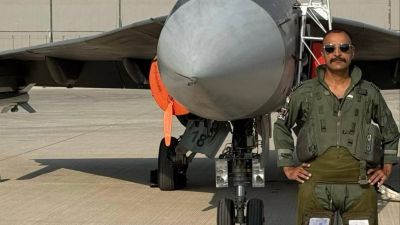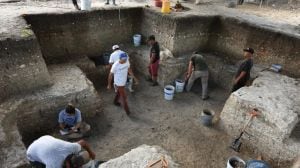Two reasons to worry about city’s WiFi connections
The recent hacking of Wi-Fi connections by terrorists has underscored the difficulty in securing such networks. “Unlike bomb blasts carried out by terrorists...

First, hacking is easy, detection difficult
The recent hacking of Wi-Fi connections by terrorists has underscored the difficulty in securing such networks. “Unlike bomb blasts carried out by terrorists, hacking is a hidden and difficult-to-trace activity. Tampering into others’ computer systems does not leave any tangible trace,” said Sudam Choure, chief coordinator of Pune police’s cyber committee.
“There is nothing like ‘ethical hacking’. People with a criminal intent can easily get trained in ‘ethical hacking’ and use their knowledge for criminal activities,” Choure said.
Mansoor Asghar Peerbhoy, the IT executive arrested from the city, has been described as the head of an Indian Mujahideen module that hacked Wi-Fi networks to send terror mails before and after serial blasts. He had taken up a course in ethical hacking.
Deputy Commissioner of police (cyber crime) Rajendra Dahale agreed. “Use of Wi-Fi technology for crime is increasing, as it is difficult to trace the hackers.”
The police have started encouraging IT firms to secure their Wi-Fi networks. Police Commissioner Satyapal Singh said, “We have urged them to be alert and take measures to secure their Wi-Fi networks.”
Choure suggested that audits of systems security be carried out at regular intervals. “The intelligence of hackers can never be underestimated. Security systems should go through a number of layers to check the authenticity of the user. That could curb hacking to some extent,” he said.
One can hack into a system from a cyber café and the Pune Central Cyber Café Association has tried to put a safeguard in place. Association president Rahul Pokale said, “We don’t let any user inside a café without first asking for an identity proof such as a driving licence or PAN card, with the person’s photograph on it. We keep a photocopy. If anyone refuses to produce such proof, we not only deny them access but sometimes even inform the police if the customer is adamant.”
At the Balewadi sports complex, the police said the Fi connections are well-protected. “We willl not allow visitors, expect authorised journalists and VIPs, to carry laptops into the sports complex,” the Commissioner of Police said.






- 01
- 02
- 03
- 04
- 05

























